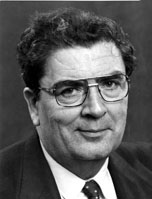
The Dublin government secretly paid senior SDLP politicians expenses and “civil service mileage” during the 1970s, 26-County State papers show.
Confidential files reveal that senior SDLP figures received payments from Dublin after the collapse of the North’s power-sharing executive in 1974.
Former party leader John Hume was top of the expenses list followed by Austin Currie and Seamus Mallon.
One memo raised concerns that the Department of Finance-sanctioned “civil service mileage rates” and “Class A” subsistence payouts for meals and overnight stays were being drawn by the SDLP leadership.
The files on party expenses show other notable SDLP figures, including Hugh Logue; Frank Feely; Paddy O’Donoghue; Joe Hendron; Michael Canavan; Tom Daly; Gerry Fitt; Dan McAreavy; and Brid Rodgers all made expenses claims.
Officials were later tasked with checking with government ministers if the claimed meetings had actually occurred.
Historical papers in recent years have revealed that the Dublin administration, led by then Taoiseach Jack Lynch, was primarily concerned with the threat of the IRA to its own authority. Lynch’s Fianna Fail government openly sought to support the SDLP to prevent a popular IRA rising.
Papers revealed over the New Year show a Dublin senior civil servant was surprised at the extent of Mr Hume’s support for defeating the IRA and concerned by his support for internment without trial. In a briefing note on a meeting with Mr Hume, David Neligan, assistant secretary at the Department of Foreign Affairs, said: “ “His [Mr Hume’s] thoughts were evidently running towards the idea of internment as a solution to the IRA violence.
“The authorities could publish names of suspected members of illegal organisations and require them to announce publicly that they had severed all connections with those bodies or, alternatively, be interned.
“In this and other respects, Mr Hume’s ideas to cope with the immediate grave situation did not seem to have been fully thought through.”
British officials considered Jack Lynch to be an agreeable and easily influenced individual and papers revealed they were concerned in 1979 that he would stand down as Taoiseach and Fianna Fail leader.
The fact that Charles Haughey was the obvious front runner to succeed him was greeted with some concern, particularly given his tendency to use “provocative phrases” on the North.
Haughey’s ability to cultivate the party grass roots was compared with Richard Nixon’s success with the Republicans in the US. After he defeated Colley by 44 votes to 38, it was observed that he was “a much more decisive man than Mr Lynch and has a very considerable reputation as a ‘can-do’ manager”.
The British embassy commented that Haughey’s ultimate victory had “caused a number of undesirable figures from his past to emerge from the woodwork” who now “think their time has come”.
However, on December 7th, the British ambassador hoped Haughey would “emulate Eamon de Valera who, when in government, took a very tough line on security while saying a lot of unpalatable things”.
If “he continues in this vein”, the ambassador noted, “we are in for a rough ride”.
![[Irish Republican News]](https://republican-news.org/graphics/title_gifs/rn.gif)
![[Irish Republican News]](https://republican-news.org/graphics/title_gifs/harp.gif)

